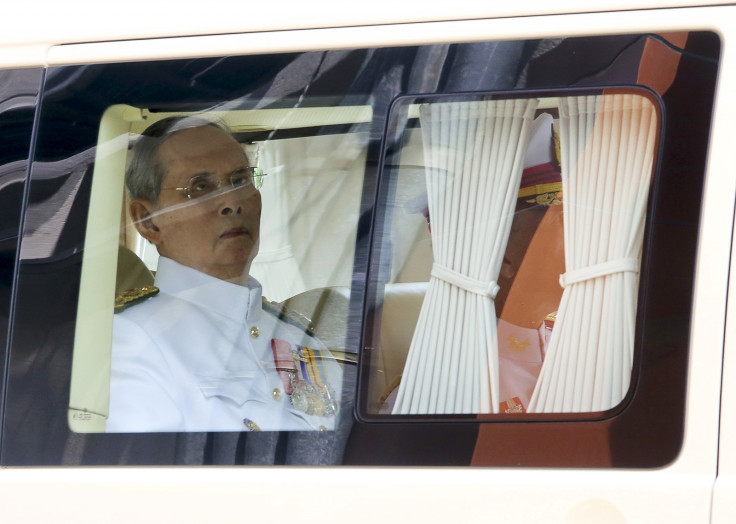Mentally ill man jailed for sending insulting email to Thai king

A mentally ill man has been jailed for three years for sending an unflattering email to the King of Thailand, in the latest of a series of prosecutions under the country's severe lèse majesté laws.
Thanet Nonthakot, 45, becomes the second mentally ill defendant to go to prison for insulting the monarchy.
A doctor told the court that Thanet was mentally ill but knew what he was doing when he sent the comments about King Bhumibol Adulyadej, 87, and his heir, 62-year-old Crown Prince Maha Vajiralongkorn.
Thanet admitted to sending the remarks and he admitted that what he did was wrong, and had he been in control of his mental state, he would not have sent the email.
But the Thai court found him guilty of breaking the law and sentenced him to serve three years in prison.
"The defendant cannot prove that he was unable to control himself when he sent the email," the judge said.
The laws governing offending the Thai royal family are being abused by the military junta – which deposed the democratically elected government in 2014 – to silence political opponents, according to human rights organisations.
At least 46 people are being prosecuted for breaking the law, compared to only two people convicted up to the point when General Prayuth Chan-o-cha took power.
In May of this year, a mentally ill 65-year-old woman was also jailed for allegedly insulting a portrait of the Thai king, the Bangkok post reported.
Public discussion of the law, its impact and application is virtually impossible. Earlier this month the junta banned the Foreign Correspondents Club of Thailand from holding a planned debate on the law.
On 19 June the UN's Committee on Economic, Social and Cultural Rights criticised the "excessive interpretation of lèse majesté" saying it had an "adverse effect" on Thai society.
"The abuse of Article 112 has become an international embarrassment for Thailand and it is damaging the image of the Thai monarchy," Karim Lahidji, president of the International Federation of Human Rights said in a statement published on Tuesday in response to the UN criticism.
"It's time for Thailand to heed the numerous recommendations made by various UN human rights bodies to amend its lèse majesté legislation," he urged.
© Copyright IBTimes 2025. All rights reserved.



















